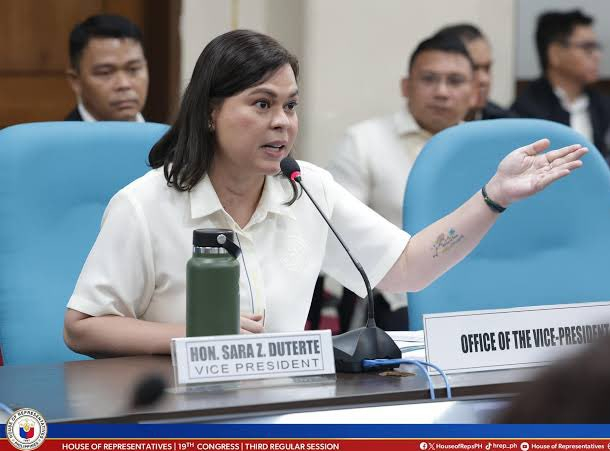Philippine Vice President Sara Duterte caused a political firestorm after declaring she had arranged for an assassin to kill President Ferdinand Marcos Jr., First Lady Liza Araneta-Marcos, and House Speaker Martin Romualdez if she is assassinated. The shocking remarks were made during an online news conference early Saturday, drawing immediate concern and action from the government.

Executive Secretary Lucas Bersamin referred Duterte's comments to the Presidential Security Command, describing the situation as an "active threat." The security force, tasked with protecting the president and his family, labeled the remarks a national security issue. Security around President Marcos has since been tightened as law enforcement agencies investigate the matter.
Duterte later backtracked, claiming her remarks were not literal but an exaggerated expression of concern about an alleged threat to her own life. "Why would I kill him if not for revenge from the grave?" she asked rhetorically, dismissing accusations that her statements were serious threats.
Legal experts suggest her remarks could still lead to criminal charges under Philippine law, which punishes public threats with jail time and fines. The potential legal ramifications have fueled debates over the implications of Duterte's statement.
The controversy comes amid growing tensions between Duterte and Marcos. Though they ran as running mates and secured landslide victories in the 2022 elections, their alliance has deteriorated. Disputes over key policies, including their differing approaches to China's activities in the South China Sea, led Duterte to resign from her Cabinet positions in June.
The political rift intensified when House Speaker Romualdez, a close ally of Marcos, led efforts to detain Duterte's chief of staff, Zuleika Lopez. Lopez was accused of obstructing a congressional investigation into alleged misuse of Duterte's budget. Lopez fell ill while in custody and was moved to a hospital, sparking outrage within Duterte's camp.
During her explosive address, Duterte accused the president, his wife, and Romualdez of corruption and political persecution. "I've given my order," she said, claiming her assassin would target them if she were killed. The comments, peppered with expletives, underscored the deep divisions within the country's leadership.
The military, led by General Romeo Brawner, responded with a call for calm. "We must stand together against those who aim to divide us," he stated, emphasizing the military's commitment to nonpartisanship and the protection of democratic institutions.
Duterte's remarks drew comparisons to her father, former President Rodrigo Duterte, known for his controversial anti-drug campaign. The elder Duterte recently admitted to maintaining a death squad during his time as Davao City mayor, further highlighting the family's polarizing legacy.
As political tensions escalate, many Filipinos are left questioning the stability of the country's leadership. The government's next steps will be critical in addressing the fallout from Duterte's remarks and restoring confidence in national unity. For now, the situation remains a volatile chapter in the nation's political history.









